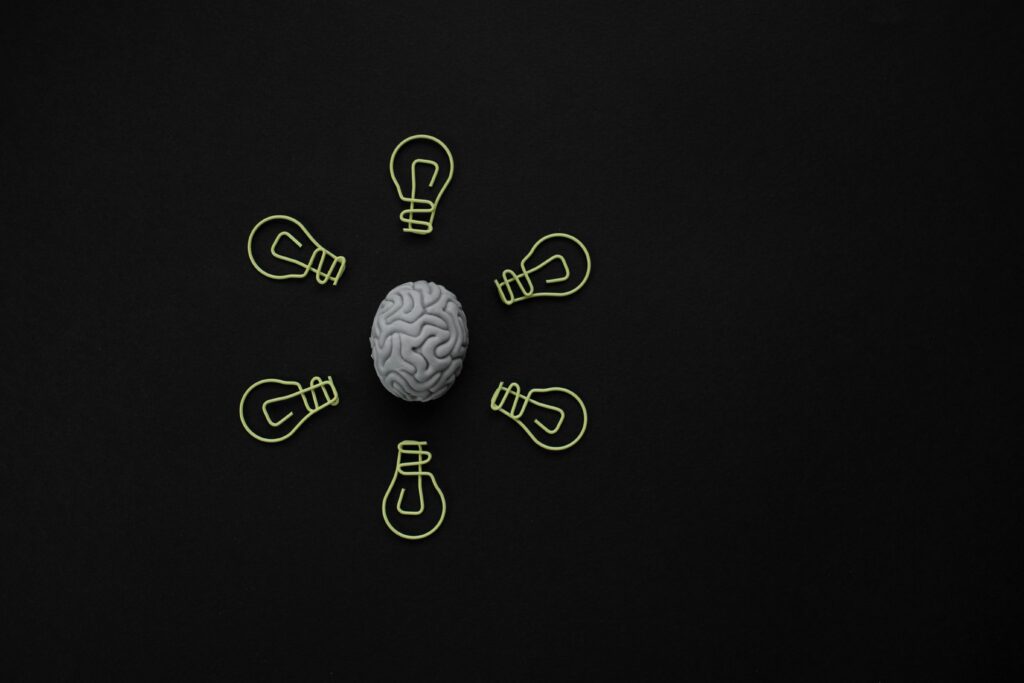Keeping your brain sharp is essential for maintaining a high quality of life. Cognitive abilities affect how you solve problems, learn new skills, and process information daily.
However, factors like stress, poor nutrition, and aging can impact brain function. Fortunately, adopting specific habits can help keep your mind agile and alert.
This article explores effective ways to keep your brain sharp, emphasizing the importance of a proactive approach to mental health.
Healthy Lifestyle Choices

One of the most impactful ways to keep your brain sharp is by adopting healthy lifestyle habits. These include a balanced diet, regular exercise, and quality sleep.
1. Nutrition for Brain Health
A brain-boosting diet is essential for mental clarity and memory. Foods rich in omega-3 fatty acids, such as salmon and walnuts, enhance cognitive function. Antioxidant-rich fruits like blueberries protect brain cells from oxidative stress.
Additionally, leafy greens such as spinach provide vital nutrients like vitamin K, which supports brain health. Hydration is equally crucial, as dehydration can impair focus and memory.
2. Exercise and Cognitive Function
Physical activity improves blood flow to the brain, delivering oxygen and nutrients essential for mental clarity. Studies have shown that regular aerobic exercise, such as walking or cycling, can increase the size of the hippocampus, a brain region associated with memory.
Strength training also has cognitive benefits, promoting better focus and reducing the risk of dementia.
3. The Power of Sleep
Quality sleep is vital for memory consolidation and emotional regulation. During deep sleep stages, the brain processes and organizes information from the day. Poor sleep can lead to mental fatigue, difficulty concentrating, and memory lapses.
Establishing a consistent sleep schedule and creating a restful environment can significantly improve brain function.
Engage in Mental Stimulation
Keeping the brain active through mental challenges is a proven way to enhance cognitive abilities.
1. Brain-Training Activities
Activities like solving puzzles, playing chess, or learning a musical instrument engage different areas of the brain.
These tasks improve memory, problem-solving skills, and concentration. For example, crosswords enhance verbal skills, while strategy games sharpen critical thinking.
2. Lifelong Learning
Continuous learning keeps the brain sharp by creating new neural connections. Enroll in online courses, read diverse genres of books, or explore creative hobbies like painting or writing.
Learning a new language is particularly effective in improving memory and attention span.
Read More
11 Ways To Keep Your Mind Sharp
Important Skills For Life in 2025

Social Connections and Interaction
Social engagement is another key way to keep your brain sharp. Building relationships and participating in group activities can help reduce the risk of cognitive decline.
1. Benefits of Social Interaction
Engaging in meaningful conversations stimulates the brain by encouraging active listening and response formulation. Social interactions also help combat loneliness, which has been linked to memory issues and cognitive decline.
2. Ways to Build Social Connections
Join a book club, volunteer in community projects, or participate in group fitness classes. These activities provide opportunities to connect with others while keeping the mind active.
Maintaining close relationships with friends and family further enhances emotional and cognitive well-being.
Stress Management Techniques
Chronic stress negatively impacts brain function, leading to memory problems and difficulty focusing. Incorporating stress management techniques into your daily routine can help preserve cognitive health.
1. Mindfulness and Meditation
Mindfulness practices like meditation and yoga promote relaxation and mental clarity. These activities reduce cortisol levels, a stress hormone that can harm the brain over time.
Regular meditation has also been shown to improve focus, emotional regulation, and overall brain health.
2. Breathing Exercises
Deep breathing exercises calm the nervous system and improve oxygen flow to the brain. Techniques like the 4-7-8 method (inhaling for four seconds, holding for seven, and exhaling for eight) can be practiced anywhere and provide immediate stress relief.
3. Nature Walks
Spending time outdoors reduces stress and enhances mental well-being. Nature walks combine physical activity with a calming environment, offering dual benefits for brain health.
Limit Screen Time and Digital Overload
In today’s digital era, excessive screen time is a common challenge that affects focus and cognitive health.
Long hours spent on devices can lead to digital fatigue, impairing memory and productivity. One of the most effective ways to keep your brain sharp is by managing screen exposure and prioritizing offline activities.
1. Effects of Excessive Screen Time
Prolonged screen usage stimulates the brain, leading to mental exhaustion. Research shows that constant exposure to digital content disrupts attention spans, hinders memory retention, and diminishes problem-solving skills.
Additionally, blue light emitted by screens can interfere with sleep quality, further impacting brain health.
2. Tips for Balancing Screen Time
To reduce the adverse effects of screen use, establish a daily limit for device usage. Schedule regular breaks using techniques like the Pomodoro method, where you work for 25 minutes and take a 5-minute break.
Incorporate offline hobbies such as reading, gardening, or journaling to engage your brain in a more balanced way. Furthermore, create screen-free zones at home, such as during meals or in bedrooms, to encourage meaningful interactions and relaxation.
By reducing digital overload, you allow your brain the rest it needs to function optimally, making this an essential strategy in the list of ways to keep your brain sharp.

Adopt a Growth Mindset
Cultivating a growth mindset is another powerful way to keep your brain sharp. A growth mindset fosters curiosity and resilience, encouraging individuals to embrace challenges and continue learning throughout life.
1. The Role of Curiosity
Curiosity drives exploration and innovation, which are vital for cognitive development. When you actively seek out new knowledge or skills, your brain forms fresh neural pathways, enhancing memory and adaptability.
Activities such as exploring new cultures, taking up a creative hobby, or engaging in intellectual discussions stimulate curiosity.
2. Overcoming Fear of Failure
Fear of failure often prevents people from trying new things. However, viewing mistakes as opportunities to learn rather than setbacks builds resilience. This mindset not only strengthens problem-solving skills but also promotes mental flexibility.
Adopting this perspective ensures continuous personal and cognitive growth, which is crucial for maintaining sharpness.
By staying curious and embracing learning opportunities, you nurture your brain’s potential, making it an essential practice among ways to keep your brain sharp.
Physical and Mental Rest
Rest is often underestimated but plays a critical role in maintaining cognitive health. Incorporating physical and mental relaxation into your routine is a fundamental way to keep your brain sharp.
1. Importance of Taking Breaks
Rest breaks allow your brain to recover from mental strain, improving focus and creativity. When you push yourself too hard without pauses, mental fatigue sets in, reducing productivity.
Strategic breaks during work or study sessions enhance problem-solving abilities and memory retention.
2. Strategies for Relaxation
Incorporating relaxation into your daily life doesn’t have to be complicated. Short walks, deep breathing exercises, or even a quick nap can recharge your mind.
Activities such as yoga and mindfulness meditation are especially effective, as they reduce stress and improve mental clarity. Engaging in leisure activities like painting or listening to music also provides restorative benefits.
3. Physical Rest and Sleep
Quality sleep remains one of the most critical forms of rest. During sleep, the brain consolidates memories and clears toxins that accumulate throughout the day.
Aim for 7-9 hours of uninterrupted sleep and establish a bedtime routine that promotes relaxation, such as dimming lights and avoiding screens.
Prioritizing rest and relaxation ensures your brain remains alert and agile, solidifying its place among the best ways to keep your brain sharp.
Conclusion
Incorporating strategies to keep your brain sharp is vital for overall well-being and long-term cognitive health. From reducing screen time to fostering a growth mindset and prioritizing rest, these practices have profound benefits.
They not only improve memory and focus but also enhance resilience and adaptability in everyday life.
Remember, the key lies in consistent effort and gradual implementation. Start small, whether by limiting digital distractions or embracing new learning opportunities. Over time, these habits will contribute significantly to maintaining mental sharpness.
By dedicating yourself to these changes, you unlock the full potential of your brain, ensuring it remains your most powerful asset.






